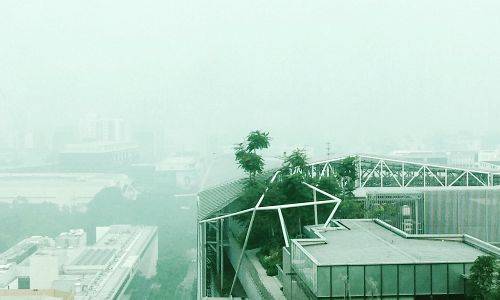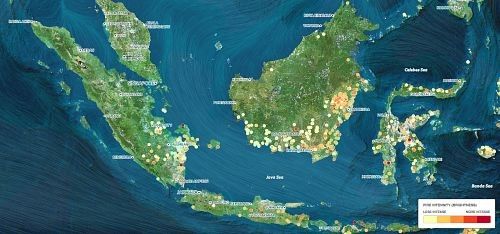Singapore: A Financial Center Disappears
Almost unnoticed by the Western world, a massive environmental problem has arisen in Singapore. Not only is it restricting the everyday life of the population, it is increasingly becoming a serious burden for the financial center.
Everything still looks good on paper: In the most recent rankings of the world’s best financial centers, Singapore was placed securely in fourth position, behind London, New York and Hong Kong, defending its position from the previous year without a problem. Expats also rate the Asian city state, celebrating its fiftieth anniversary this year, very highly, according to the latest survey.
Following its rapid growth since 2006, the financial center of Singapore has undertaken a lot on the regulatory side in recent years, to discourage illicit business – even if its reputation has been hurt by some scandals, such as the corruption affair (finews.ch article in German) involving the Malaysian president Najib Razak.
Hardship from elsewhere
But the Monetary Authority of Singapore (MAS), the state’s regulator, is working hard to make the required regulatory corset so that the center will meet the highest international standards. The city state even seems to have already complied with the Automatic Exchange of Information, coming in 2018. And client advisors in the banks have to undergo regular screening tests.
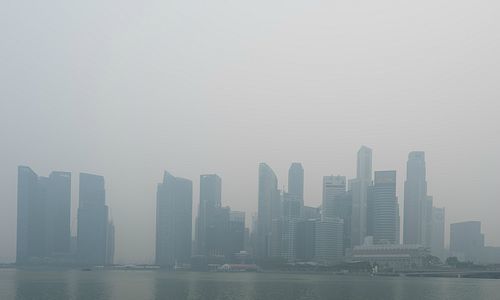
But now hardship is threatening the financial center from another direction. Meteorological conditions are the cause, or the fact that for more than a month highly damaging smoke emissions from Indonesia have massively deteriorated the air quality in Singapore. At the end of last week, the situation was so bad that the schools were closed and the government advised employers not to send workers outdoors if possible.
Very unhealthy to hazardous
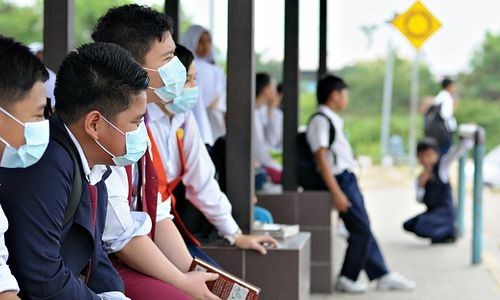
Day after day, the pollution level is ‘very unhealthy’ or even ‘hazardous’. This is a huge psychological strain for the residents of Singapore, forcing them to wear masks when they go outside and causing massive disruption to everyday life as well as business activity.
There has also been a significant impact on tourism. In the last ten years Singapore has managed to transform itself from a clean but boring place into a city with a hip lifestyle. The image could easily slip if the current air problem is not quickly resolved.
Profit from palmoil plantations
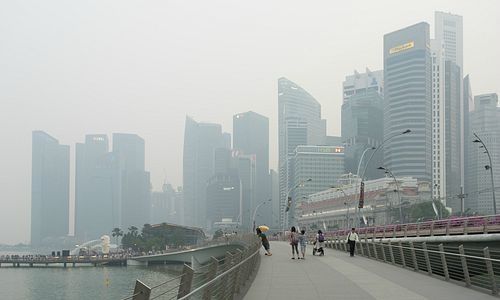
The frustration among tourists is massive and is taking on worrying proportions, especially as the haze could last until November. Before now the problem phase had been limited to around four weeks at a time. This year it has already exceeded this time frame.
The trigger to the whole situation is forest clearing in Indonesia, specifically in Sumatra. The aim is to claim arable land for palm oil plantations. Farmers in the pay of international companies are being instructed to burn entire forests.
This is causing the smoke emissions that, according to wind direction, are affecting Indonesia and Singapore and sometimes Malaysia. To make matters worse, the fire smolders underground making it very difficult to extinguish.
Unnoticed environmental damage
Amazingly this massive and absolutely crazy environmental damage is hardly getting any media coverage outside South East Asia. The refugee crisis dominates the headlines in Europe. It is not without irony that the Volkswagen scandal about manipulated emissions values comes at a moment when the air in South East Asia is hardly breathable.
The fact that many of the companies active in the palm oil business either have their holding headquarters in Singapore or are quoted on the stock exchange there is an additional complication. This casts a very unflattering light on the small city state that likes to present itself as a dynamic financial center in South East Asia.
Political animosity
The result is political wrangling and counter accusations of blame between Jakarta and Singapore – naturally without a tangible improvement for the people of either country.
When Singapore’s government offered logistical and practical support in recent weeks in the battle against the fires, the Indonesian government promptly rejected the offer, confidently claiming they were well enough equipped in this area. Since then, because of the acute situation, there have been signs of a rapprochement, although the tone remains bitter, which hardly bodes well for good cooperation.
Far reaching consequences for the banks
The situation has also affected the finance sector in Singapore. Meetings have had to be postponed, the planning of business processes has become more difficult, and the reputation of the ‘garden city’ on the equator is suffering.
On a broader level, expats will have to think twice whether they – some with families – really want to move to Singapore as long as the city presents a danger to health for weeks if not months at a time. All the more difficult because the finance sector is experiencing an acute shortage of well qualified and experienced bank staff.
Weather plays a role
As the Singapore example illustrates, not only regulatory factors can influence the reputation of a financial center but also meteorological and political factors. In this respect Switzerland has good cards and can be recommended as a top class financial center.

